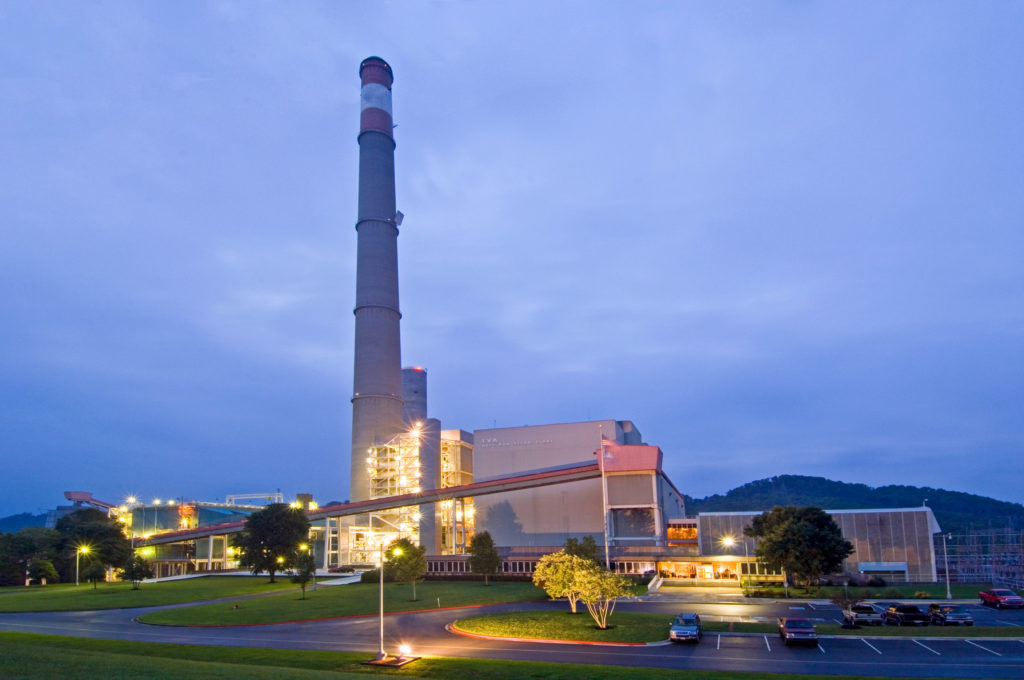
The Tennessee Valley Authority has five coal plants in operation today: Bull Run, Cumberland, Kingston, Gallatin and Shawnee.
Every coal plant sits next to a river. TVA draws water from a river, uses it for cooling or waste processing, separates it back out, and then dumps it back in — sometimes at a rate of over a billion gallons per day.
This water contains pollutants like mercury and arsenic that the Environmental Protection Agency limits through the Clean Water Act. These pollutants can cause lowered IQ among children, cancer, and deformities in fish and wildlife, according to EPA, which has been reviewing its limits.
TVA has individual permits for each of its coal plants to legally pollute waterways at specified amounts. The utility is currently seeking a “modified” permit from the Tennessee Department of Environment and Conservation for its Bull Run Fossil Plant, a coal stack on the Clinch River near Knoxville.
 Courtesy Environmental Protection Agency
Courtesy Environmental Protection Agency Water discharged from coal plants can contain heavy metals and dissolved solids that are harmful to the environment and animal, including human, health.
The current permit for the Bull Run Fossil Plant will expire in April, and TVA is planning to retire the plant by December. TVA wants to keep discharging at the same rate that is has been for the remainder of the plant’s life.
The larger issue, according to some Tennesseans and environmental groups, is that there is no limit for coal ash leachate, which can end up in groundwater.
“You’ve got a huge coal ash mountain in a very vulnerable place,” Jean Cheely, a resident of East Tennessee, said during TDEC’s public hearing about the Bull Run permit earlier this month. “It’s not lined. It’s in the groundwater.”
The Bull Run site contains four, unlined coal ash ponds. TVA said these coal ash sites are no longer “ponds,” however, because they have been drained.
This site has 18 groundwater monitoring wells, and an investigation by Earthjustice found that 12 of these wells had unsafe levels of pollutants between 2010 and 2019. The groundwater tested exceeded EPA standards for sulfate, cobalt, lithium, arsenic, manganese, molybdenum, boron, strontium and barium.
Cheely and others want TDEC to use its regulatory power and make TVA add a proven technology, like a membrane liner, to contain this coal ash.
“TDEC is in a very unenviable position to try to tame the big dog,” Cheely said.
TVA said it is currently studying how to deal with its coal ash because, in 2015, TDEC mandated it through an order.
Without some sort of control, the coal ash sites will continue to pollute groundwater and pose risks to nearby waterways, especially when considering the probability of climate-fueled floods. The Bull Run site sits on the Clinch River, the same waterway that the infamous Kingston coal ash spill impacted in 2008.
Julie Blesdoe, the wife of a worker she says became sick after cleaning up that coal ash, also spoke at the public hearing earlier this month.
“Industry is put first in this state, not the people,” Blesdoe said. “So, I would like to warn the people that you’re going to have to make a lot of noise.”
Another concern raised during the public hearing was the lack of transparency — or just understandability — of the issues surrounding the permit.
“This has been a very difficult situation from a communication standpoint to get the information and find the information that we need to make those (public) comments,” said Mark Watson, the city manager for the city of Oak Ridge, which is near the Bull Run plant.
TDEC will soon decide whether to approve TVA’s requested permit for the Bull Run plant. If the permit modification is denied, TDEC said TVA will be required to take “any actions related to water quality limits or requirements.” TVA has already modified a permit in a similar fashion once before to use less stringent, Trump-era regulations for its Kingston Fossil Plant.
The coal ash ponds will be addressed in a separate process.
“Any and all decisions regarding the closure and remediation of Coal Combustion Residual units at Bull Run will be made by TDEC through the 2015 Commissioner’s Order,” TDEC spokesperson Kim Schofinski said.

